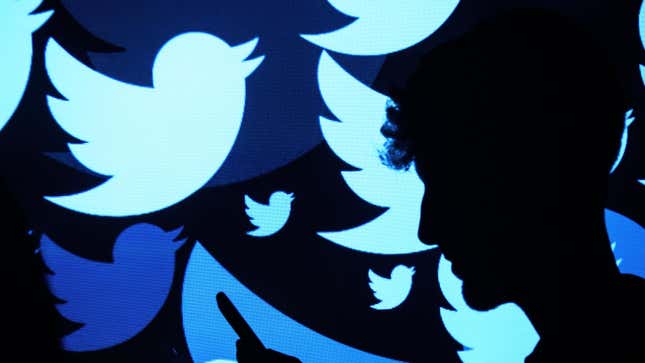
Twitter announced Tuesday that it would ban content featuring prisoners of war from government and state-affiliated media organizations amid the online information war between Russia and Ukraine playing out on its platform. The company said it social network would no longer amplify or recommend government accounts from Russia.
Yoel Roth, Twitter’s head of site integrity, announced the company’s policy change in a tweet. He explained that the policy, which is now in effect, would require government and state-affiliated media organizations to remove tweets with prisoner of war content. In order “to protect essential reporting on the war,” the social media platform will be making some exceptions in cases where it determines there is a compelling public interest or newsworthy content on prisoners of war.
“Beginning today, we will require the removal of Tweets posted by government or state-affiliated media accounts which share media that depict prisoners of war in the context of Ukraine,” Roth wrote.
In a blog post, Twitter stated that its new policy was based on Article 13 of the Geneva Convention of 1949. The article maintains that prisoners of war must be treated humanely at all times and protected from acts of violence or intimidation, insults, and public curiosity.
“We are guided by international humanitarian law, specifically Article 13 of Geneva Convention III (on protecting prisoners of war (PoWs) from any physical or psychological abuse or threat thereof, and encompasses a prohibition on humiliating them) and do not want Twitter to be used by state actors to infringe this law,” the company’s statement read.
According to Reuters, official Ukrainian government social media accounts have posted content showing prisoners of war in recent weeks, including videos of Russian prisoners of war answering questions or making phone calls home. In a nod to the platform’s new policy, one of Ukraine’s most popular government accounts, @Ukraine, published a plain white image with black text.
It contained the following message: “No photo from Bucha here. You saw all the photos. Act now.”
The government account references the tragedy in Bucha, a town outside of Kyiv that was occupied by Russian forces, where evidence indicates that Russian soldiers brutally killed Ukrainian citizens. The Washington Post reported that journalists on the ground had seen bodies lying in the streets of Bucha. Roughly 270 residents had been buried in two mass graves, the outlet stated.
In addition to its ban on prisoner of war content, Twitter will also stop amplifying and recommending Russian government accounts, Roth said. The company told Reuters that this policy would affect more than 300 Russian accounts. Twitter is blocked in Russia.
“What does this mean? We won’t recommend these accounts, and we won’t amplify them across the Home Timeline, Explore, Search, and in other places on Twitter,” Roth said on Twitter. “This measure drastically reduces the chance that people on Twitter see Tweets from these accounts unless they follow them.”
Gizmodo reached out to YouTube, Instagram, Facebook, Snapchat, and TikTok to ask whether they had similar bans in place for prisoner of war content. As of the publication of this article, only YouTube had responded.
The company pointed Gizmodo to a Twitter thread on its actions taken during the war so far, which include blocking access to YouTube channels associated with Russian state-funded media globally. YouTube said it had removed more than 1,000 channels and 15,000 videos for violating its policies on hate speech, misinformation, graphic content, and more.